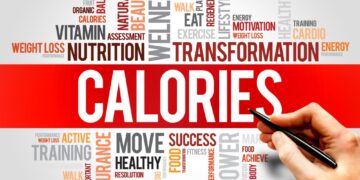The keto diet has many health risks, and some people should not try it. For example, people with kidney disease or other conditions should avoid it. Pregnant women and people with type 1 diabetes should also avoid it. People who have had their gallbladder removed or who are suffering from liver or pancreatic problems should also avoid it.
The keto diet involves consuming large amounts of fat. The average daily intake is around 60% of fat and only 10% of carbohydrates. Because of the high-fat content, the keto diet can cause some uncomfortable side effects.
Some studies suggest that people who are overweight or obese should not follow a keto diet. This is because diet is not a cure for weight loss. Instead, it is only a temporary solution to obesity.
Here are some people who should not follow a keto diet.
Keto Diet – Is It Right For You?
While it has several benefits, a ketogenic diet may not be right for everyone. For instance, people with type 1 diabetes are not recommended to try it because they are at a higher risk of diabetic ketoacidosis. This condition is a serious complication of diabetes and can lead to dehydration and acidic blood.
People with type 2 diabetes, on the other hand, may be able to benefit from this diet because it may increase insulin sensitivity and help them lose weight. As a result, it is important to talk to your healthcare provider before attempting the keto diet.
Who Should Avoid the Keto Diet?
People with certain health conditions or eating disorders should avoid the keto diet. The diet has a restrictive nature and can worsen an existing condition.
People Facing An Eating Disorder
A Keto diet can be dangerous for people who are facing an eating disorder. It can cause nutritional deficiencies, as well as kidney and liver problems. Additionally, it can raise “bad” cholesterol levels, which can increase the risk of heart disease. The extreme restriction of this diet can worsen binge eating behaviors. It’s best to stick with a diet that encourages you to eat fewer calories to prevent binge eating.

Children Below The Age Of 18
Ketogenic diets should be avoided by children below the age of 18. A ketogenic diet can cause nutritional deficiencies, which can be harmful to children. This diet switches the body’s energy source from carbohydrates to fat. Children’s body needs carbohydrates to fuel their physical and mental activities, but this diet restricts their carbohydrate intake to 20-30 grams per day. This can result in a lack of energy and decreased appetite.
Underweight People
The keto diet is not recommended for people who are underweight, but it is safe for people who are obese. Those who are underweight should seek medical advice before starting a ketogenic diet. This is a low-carb diet that reduces carbohydrate intake and increases satiety. It also reduces hunger and the risk of overeating. People who are underweight experience extreme side effects if they follow the keto diet.
Diabetic People On Insulin
A diabetic who is on insulin should not attempt a keto diet. Those with diabetes are especially vulnerable to ketoacidosis, a condition wherein the body can’t produce insulin. Because insulin and oral diabetes medications lower blood sugar, restricting carbohydrates in the daily calorie intake can cause low blood sugar and hypoglycemia. So, diabetic people on insulin should consult with their doctors before starting a keto diet.
People Taking Metformin or Other Medications
If you take metformin, it may be important to consult a medical professional before starting a keto diet. This medication belongs to the biguanide class and works to reduce blood sugar levels. It also inhibits the production of glucose in the liver. This can lead to an increase in lactate, a lactic acid compound.
Pregnant and Lactating Women
The Keto diet is not suitable for pregnant or lactating women. It is best for these women to focus on a high-quality, nutrient-dense diet free of refined sugars. They should also be aware of hunger cues. While the keto diet may seem appealing to some, it is not safe for pregnant or lactating women. One study showed that mice that were on the keto diet during lactation developed ketoacidosis, which causes a build-up of acid in the blood.
People with Kidney Disorder
The Keto diet is not recommended for people with kidney disease, as it may worsen their condition. People with CKD should stick to a lower protein diet to prevent the deterioration of kidney function. The diet also restricts carbohydrates, which may make it difficult for people with kidney disease to get enough fiber.
People Recovering from Surgery
The keto diet is not a good idea for anyone recovering from surgery. While it may be tempting to eat a high-fat diet immediately after surgery, it is best to wait at least four months after the procedure. To help your body heal properly, you should follow a low-fat diet.
Vegans
The keto diet has numerous health risks and may be unsuitable for vegans. It is high in fat and may harm the liver in the long term. A classic vegan diet includes grains, nuts, seeds, legumes, and root vegetables. These foods contain lots of carbohydrates. A ketogenic diet eliminates these foods, which can result in nutritional deficiency.

Why is the Keto Diet Not For Everyone?
While keto can help you burn fat more efficiently and lose weight, it is not for everyone. For one, it requires a lot of effort to stay in ketosis. Also, it does not allow you to consume sugar, so most no-carb sugar substitutes won’t work.
Besides, this diet can cause some side effects, including high cholesterol and kidney problems. For these reasons, you should not start a ketogenic diet if you have a history of heart disease or blood sugar problems.
It’s also impossible to get enough nutrients on a ketogenic diet without carbs. Some people may not tolerate the heightened levels of saturated fat in the keto diet. For these reasons, it’s not the best diet for everyone.













